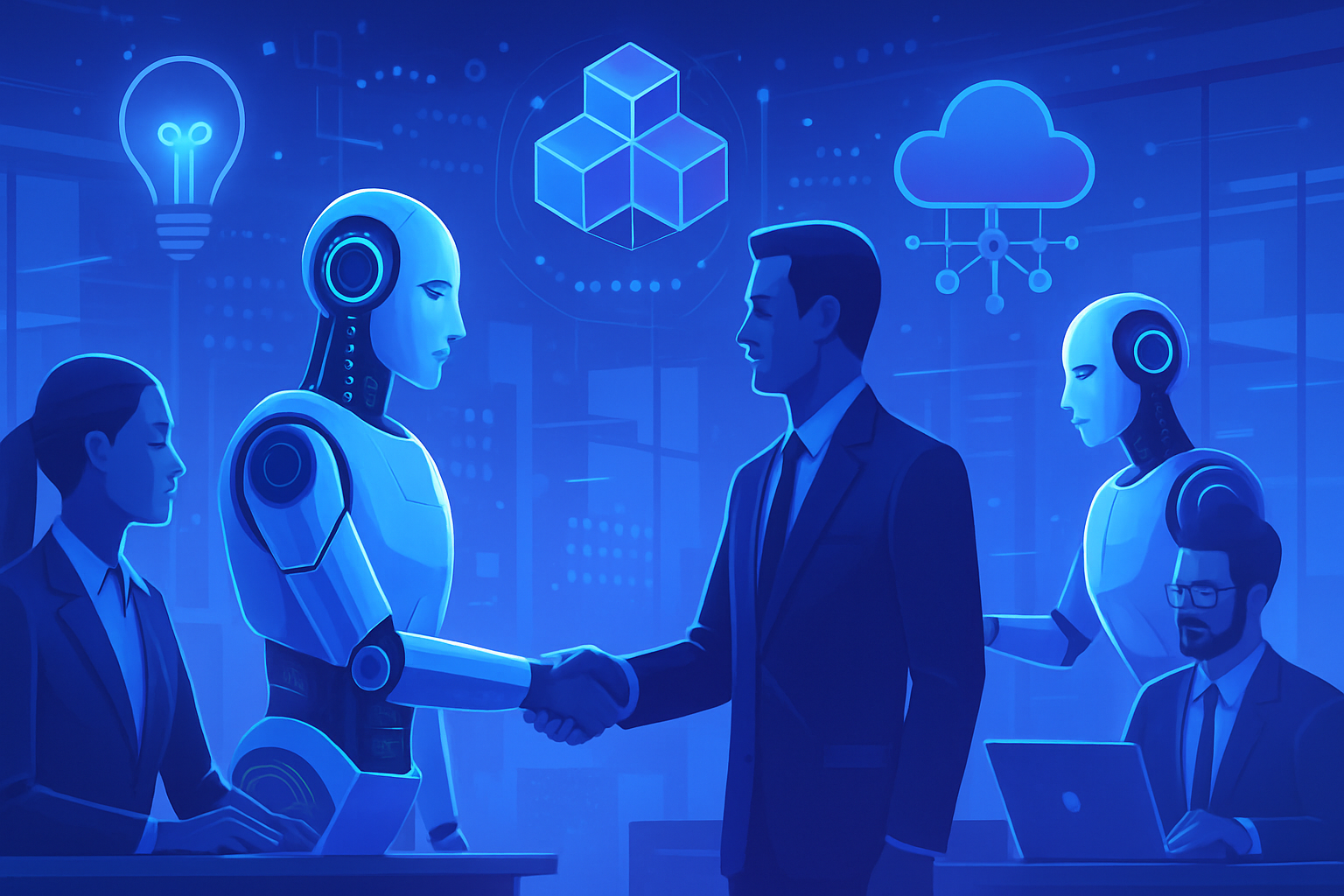The intelligent agent redefines the operational and strategic paradigms of contemporary businesses. This technological revolution appears as a manifesto of possibilities, shaking classical automation towards unexplored spheres. The interaction between human and machine becomes essential, propelling complex processes to unprecedented levels of performance. Thought leaders question the ethical and strategic implications while discerning the tangible benefits of this innovation. A judicious integration proves decisive to avoid the pitfalls of hasty adoption. An informed choice can usher in an era where artificial intelligence enriches human creativity and optimizes decision-making.
The rise of agentic AI
Agentic artificial intelligence, a significant evolution of generative AI, is distinguished by its ability to automate complex business processes. This autonomous system gathers information about its environment, interprets data, and makes decisions based on specific contexts. This new technological frontier transforms the companies’ approach to automation.
Potential and challenges
Economic stakeholders recognize the ability of AI agents to streamline operations, enhance responsiveness, and reduce inter-system frictions. Sectors such as Industry 4.0 and financial services leverage this technology to improve their functioning. However, the integration of AI agents is not improvised; it requires a rigorous strategic framework to maximize value.
Identification of suitable processes
Before adopting AI agents, a meticulous analysis of the processes to be improved is essential. Companies must focus on repetitive and predictable processes, where traditional automation is sufficient. That said, agentic AI proves its effectiveness in more complex and dynamic environments, such as supply chains subject to uncertainties or omnichannel customer journeys.
Fundamental technical conditions
One of the primary challenges in integrating an AI agent is having robust and interconnected databases. Technologies like Process Intelligence play a crucial role: they provide agents with relevant and actionable data, ensuring informed decision-making. Human interaction remains necessary, allowing for decision validation within Human-In-The-Loop models.
Investment evaluation
The implementation costs of agentic AI can be substantial, including development, training, and governance. Companies must already consider a profitability scenario, incorporating not only financial returns but also benefits in agility and robustness. Patience is essential, as benefits generally manifest in the long term.
Evolution of human dynamics
With the emergence of agentic AI, human roles within the organization are being reshaped. Humans are no longer the sole decision-makers but play a role as orchestrators, ensuring that decisions made by agents remain aligned with strategic objectives and established business rules. This paradigm shift requires acculturation and transparency regarding the functioning of agents to avoid algorithmic drift.
Adapted deployment strategy
The implementation of agentic AI requires a suitable method and adequate preparation. Companies must establish clearly defined objectives while building a reliable infrastructure. Such an approach ensures that agents become a true lever of efficiency, resilience, and market differentiation.
Frequently asked questions about intelligent agents: a technological revolution or a strategic turning point for companies?
What is an intelligent agent and how does it differ from other forms of AI?
An intelligent agent is an autonomously capable system that can perceive its environment, interpret data, make decisions, and learn. Unlike other forms of AI, it also integrates real-time adaptation mechanisms, making it particularly suitable for complex environments.
Which business processes can benefit from the integration of intelligent agents?
Intelligent agents provide a real advantage in complex and evolving processes, such as logistics, omnichannel customer journeys, and predictive maintenance. They are less suitable for repetitive and predictable tasks that fall under traditional automation.
What are the technical prerequisites for integrating an intelligent agent within a company?
Integration requires a coherent, contextualized, and interoperable database, as well as partial human supervision within a Human-In-The-Loop (HITL) framework. A solid infrastructure, such as Process Intelligence, is also essential to provide actionable data to agents.
How to assess the return on investment when adopting intelligent agents?
The return on investment should consider not only economic benefits but also improvements in agility and operational robustness. Companies should model scenarios that integrate both initial costs and long-term gains from a gradual and iterative approach.
What is the impact of agentic AI on human roles within companies?
The emergence of intelligent agents transforms the role of humans, who become orchestrators of decision-making. Even though humans are no longer the sole decision-makers, they ensure the alignment of machine decisions with the ethical values and strategic objectives of the company.
What are the major challenges associated with the implementation of intelligent agents?
Challenges include significant initial investments, the need for adequate supervision, and the management of risks related to algorithmic drift. Transparency in the functioning of agents and the acculturation of teams are also key elements to avoid negative consequences.
How do intelligent agents contribute to innovation within companies?
Intelligent agents enable continuous optimization of decision-making and experimentation with new scenarios. This fosters innovation by providing companies with adaptive capabilities to changing environments and opportunities for process improvement.






